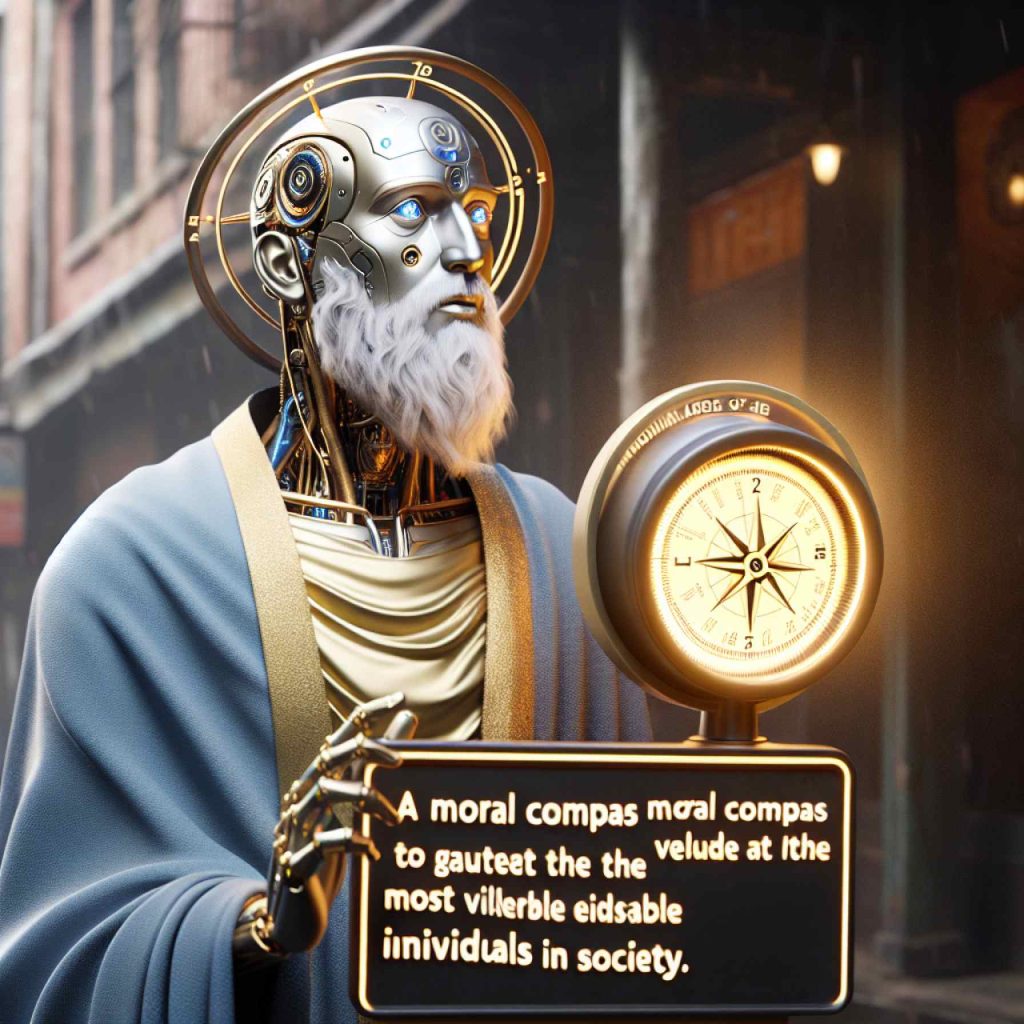
- Pope Leo XIV emphasizes the ethical responsibilities accompanying the rapid progress in artificial intelligence (AI).
- His message highlights the importance of safeguarding human dignity in the face of technological advancements.
- The Pope warns that the AI revolution should not marginalize vulnerable communities or replace irreplaceable jobs.
- He advocates for a collaborative approach among nations, corporations, and individuals to ensure that technology serves humanity.
- The speech calls for nurturing empathy, fostering inclusivity, and upholding the sanctity of life amidst technological change.
- Pope Leo XIV stresses that innovation must align with ethical considerations, moving forward with both progress and humanity in mind.
In a world spinning swiftly on the axis of artificial intelligence, Pope Leo XIV has emerged as a voice of conscience, urging humanity to tread carefully in the technological revolution. Standing beneath the gilded ceiling of the Vatican, he delivered a poignant message, artfully weaving together threads of caution and compassion as he addressed the converging paths of faith, ethics, and cutting-edge innovation.
The Pope’s concerns are not shrouded in technophobia but rooted in a deep-seated commitment to safeguarding the dignity of every individual. As the race for AI dominance accelerates across the globe, he raised an essential question: Who will bear the brunt of technology’s unfettered progress? His message resonated across the echoing halls of St. Peter’s Basilica—the surge of AI must not come at the expense of the most vulnerable among us.
AI’s promises are indeed tantalizing—healers for our ailing, catalysts for creativity, conduits for communication—but these advances bring challenges that can ripple across the social fabric. Jobs once thought irreplaceable may vanish at the blink of an algorithm. Communities may find themselves on the brink of obsolescence. In this, the Pope sees a clarion call to protect the dignity of work, to ensure that technological advancement lifts rather than oppresses.
His words served as a moral compass in an era where the ethical implications of AI are as complex as the neural networks driving these innovations. The Pope urged for a collaborative approach—nations, corporations, and individuals must unite to forge a future where technology serves humanity and not the other way around.
Pope Leo XIV’s address is a reminder that, as we stand on the threshold of unprecedented technological change, we must carry forward our shared humanity. This journey is not just about harnessing the power of machines but is equally about nurturing empathy, fostering inclusivity, and upholding the sanctity of life.
In this moment of rapid transformation, the Pope’s message echoes a timeless truth: progress should never be pursued at the expense of our most profound ethical responsibilities. It’s a call to action to design a future where innovation and inclusion walk hand in hand, ensuring that the echoes of this revolution carry forward not just the sound of machines, but the enduring heartbeat of humanity.
Pope Leo XIV’s Urgent Appeal: How Faith and AI Ethics Must Coexist
A Guide to Ethical AI: Beyond Pope Leo XIV’s Message
Pope Leo XIV’s recent statements on artificial intelligence (AI) shine a spotlight on the moral and ethical dimensions of this rapidly expanding field. His call to ensure that technological advancements do not compromise human dignity raises profound questions about the future we are building. Here, we delve deeper into aspects not fully explored in the sourced message and provide practical insights and actionable recommendations.
Understanding AI’s Double-Edged Sword
AI technologies promise significant benefits, including improved healthcare, creative stimulus, and enhanced communication channels. However, this exceptional power can come with severe societal implications:
– Job Displacement: Automation can lead to job loss in various sectors. According to a report by the World Economic Forum, AI could potentially disrupt over 85 million jobs worldwide by 2025, necessitating urgent workforce re-skilling initiatives.
– Data Privacy Concerns: The use of AI in monitoring and data processing raises critical privacy issues. Protecting individual privacy must be integrated into AI development, as emphasized by global tech ethics organizations.
How-To Steps for Ethical AI Implementation
For a future where AI serves humanity rather than undermines it, stakeholders can consider these steps:
1. Develop Inclusive Policies: Policymakers should create regulations that address AI’s ethical concerns, ensuring inclusive benefits across all demographics.
2. Promote AI Education: Higher education institutions must incorporate AI ethics in their curricula to prepare future leaders for ethical decision-making in technology development.
3. Encourage Collaboration: Foster partnerships between tech companies, governments, and civil society to develop shared AI guidelines and ethical frameworks.
4. Implement Transparent AI: Companies should ensure AI algorithms are transparent and explainable, allowing users to understand and trust AI-driven decisions.
Market Forecast and Industry Trends
The AI sector is poised to grow exponentially. According to Grand View Research, the global artificial intelligence market size was valued at $62.35 billion in 2020 and is expected to expand at a compound annual growth rate of 40.2% from 2021 to 2028. Ethical considerations will be increasingly crucial in shaping this transformative industry.
Real-World Use Cases: Positive AI Impact
While uncertainties exist, AI innovations are already creating positive change:
– Healthcare: AI is used in predictive diagnostics, personalized treatment plans, and robotic surgery, significantly increasing efficiency and outcomes.
– Environmental Solutions: AI aids in monitoring climate change by processing complex environmental data and optimizing energy consumption to promote sustainability.
Addressing Reader Concerns: Common Questions
Q: How can we balance AI innovation and ethics?
Balancing innovation and ethics requires a multi-stakeholder approach where developers, policymakers, and citizens collaborate to create frameworks that prioritize humane values in AI development.
Q: What ethics framework should guide AI development?
Adopt principles like transparency, accountability, fairness, and non-discrimination to guide AI ethics. Reference documents by the European Commission and AI Now Institute offer insights into building these frameworks.
Actionable Recommendations
1. Stay Informed: Regularly update on AI developments and ethical guidelines from credible sources. Vatican and academic institutions are valuable resources.
2. Promote Public Awareness: Engage in discussions and workshops to educate the public about AI’s impacts and ethical considerations.
3. Support Ethical AI Initiatives: Encourage both governmental and private sector investment in ethical AI projects that prioritize societal well-being.
Pope Leo XIV underscores a crucial truth: AI should advance with humanity at its core. By carefully integrating ethics and inclusivity into AI’s future, we not only honor human dignity but foster a more equitable and sustainable world.



